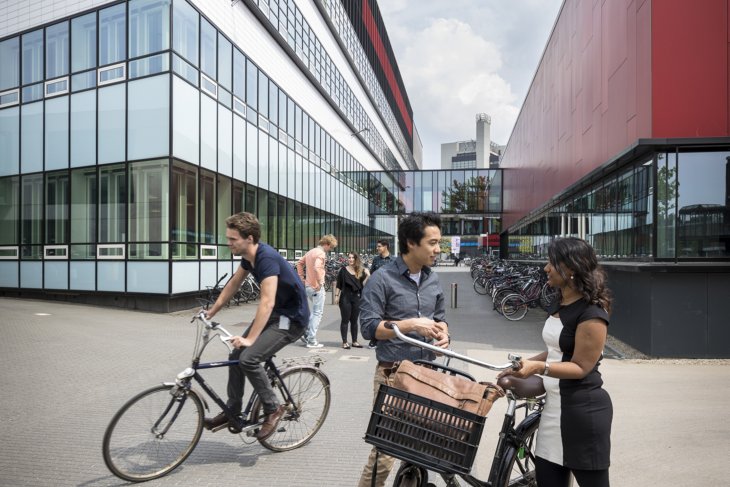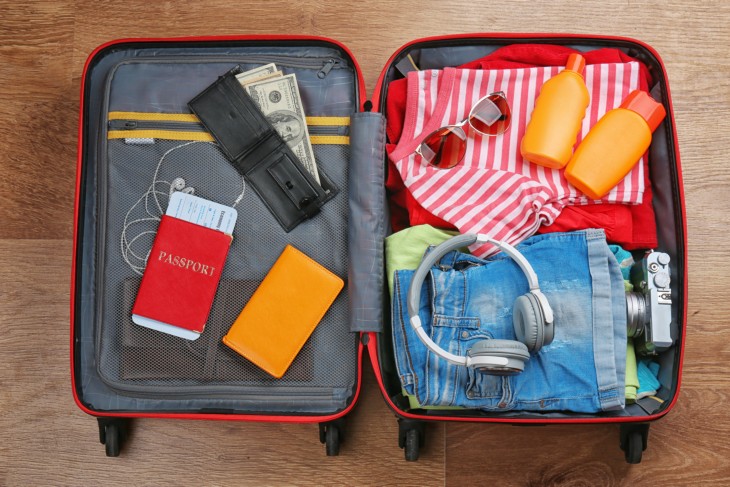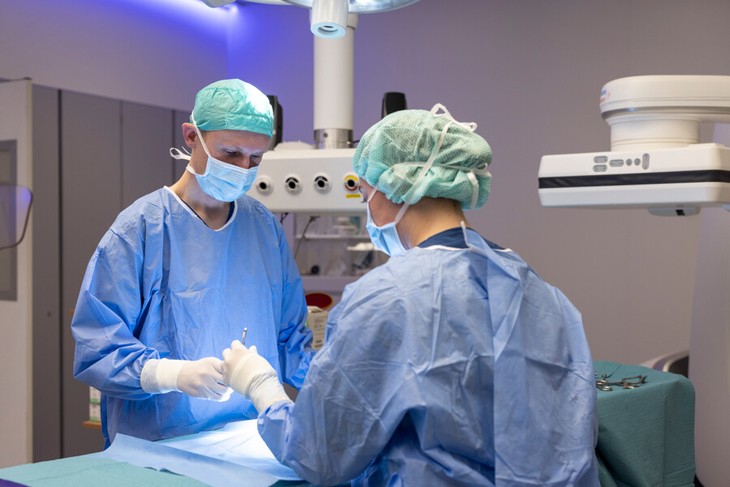Are you Dutch? Then check out our Dutch article on preparing for university.
Deadlines
For some people, deadlines aren’t real until you’re staring them right in the face. My advice: plan, plan, plan! The University of Twente has strict application deadlines, especially for non-EEA students like me who need residence permits. Non-EEA students must apply before May 1st, while EEA students have until July 1st to submit documents on Osiris. Note exceptions for specific programmes like Mechanical Engineering, Advanced Technology, Technical Computer Science and Psychology, which have different deadlines.
Goin' app
As soon as you have been officially enrolled, you will receive an invite from the University of Twente to join the Goin' app. Goin' is a platform specifically for new students: this way, you can meet prospective classmates before you even come to study here! In the app, you can connect with students from the same country, ask questions to second-year students or create groups to meet people with the same interests - for instance, gaming, fitness, reading or music. Besides, there are groups about housing, the city of Enschede and even planned events, such as a pub crawl, to get a good start on your adventure abroad.
Room-searching
New students will be pouring in from all over the world during the summer months, so looking for a room as soon as you get your confirmation letter is a good idea (usually 3 months in advance). In some cases, the University offers guaranteed housing for up to a year, but this contract is strict and only available for non-EEA students. EEA students will need to look a bit harder, though it’s definitely not impossible in a city like Enschede, as housing is cheaper and easier to find than in other Dutch cities. The University of Twente offers a short guide on how to get housing, and our own detailed guide offers additional insights. Do you want to get a feel of what types of housing are available on campus? Then check out the virtual campus tour!
What to bring
Back then, this used to be one of my main worries. What if I forget something? How will I get to the University? How am I going to set up my bank account?
These worries can all be dissolved by remembering one thing: thousands of others did it before you, and you’ll do it too. The most important thing is to remember to bring your required documents: a passport, your confirmation letter, insurance, and any previous transcripts are usually essentials. What you need to bring depends on your situation, but speaking as a non-EEA student myself, those were the things that took priority. Store them in an easy-to-access, secure location, such as your backpack, which you’ll always have on you. Your suitcase should be filled with a good balance of clothes, essential electronics (including the appropriate power plug), medicine, and if you can squeeze it in, food from home.
To get to the University, you’ll need to buy either a train ticket or an OV-chipkaart, which is the main card the Netherlands uses for its public transport. It’s quite easy to get from Schiphol Airport or Eindhoven Airport to Enschede Central Station, and there are usually trains every half hour. If you want to learn more about public transport in the Netherlands (which you will probably be using to get around the country), our guide to Dutch public transport has you covered.
New students often worry about setting up a bank account in the Netherlands. Bring some cash in exchangeable currency or Euros for initial expenses, but note that cash is less commonly used; most shops prefer debit cards. I used the Revolut app for international transfers and iDEAL payments initially and got my first debit card through the app. However, due to the absence of a Dutch IBAN, some online transactions may be inconvenient. Eventually, I switched to ING, a major Dutch bank, where creating an account was a straightforward process of identity verification and a few clicks.
Visa, residence permit, BSN – how?
If you’ve accepted your offer from the University of Twente, the University applies for the visa and residence permit and you’ll be able to get it in your home country in most cases. As for the BSN (citizen service number) and residence permit, you need to make an appointment with the IND (Dutch Immigration Service) and the municipality of Enschede. You’ll be informed of the steps to be taken via email, though in most cases, you’ll be able to register at the municipality on campus. After a couple of weeks, your residence permit should be ready, and you’ll collect it either on campus or in the IND office in Zwolle if you missed the date. Your BSN should show up in the mail at around the same time, and you need it to create a bank account and register for a doctor.
Register for the Kick-In!
Before you depart, it is a good idea to register for the campus Kick-In event. You’ll participate in a week of socialising, getting to know your fellow peers and partying! The University of Twente’s Kick-In event is usually held in high regard by students and is a good time to release your pent-up partying desires before you start your academic life.
Practice your basic skills
Cooking, cleaning, doing laundry – these are all essential skills that will only help you, whether you live alone or in a shared house. Learn to socialise well, as university is also a place to forge connections. Knowing how to enjoy spending time on your own is also valuable – for the first couple of months, homesickness and loneliness will be familiar feelings. Being able to recognise those feelings and still push through them is an essential skill to have.
Last notes
Preparing for university was stressful for me. It’s stressful for most people, and that’s perfectly fine: your life is changing rapidly, and you don’t know why. It’s all new to you, this living-on-your-own stuff, this adulting and being responsible stuff, and again, it’s all good. In no time, you’ll realise that preparing for university wasn’t really bad at all and that it all has been worth it.




